Dry Storage Shipping Containers Create Ideal Additional Pantry Space
 Marissa Morin | Mar 8, 2023
Marissa Morin | Mar 8, 2023
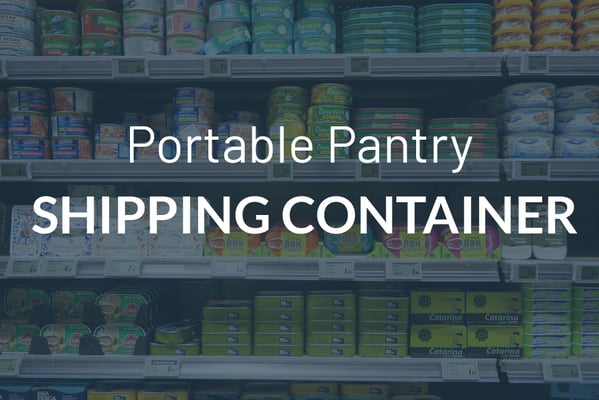
In the food and beverage industry, having dry space to store non-perishable items is important. Many companies choose dry storage shipping containers as portable pantries to stay stocked and organized. For example, restaurants, food banks, and grocery stores with curbside pickup tend to go through large amounts of nonperishable food items each week, as well as items like napkins and cups. Instead of ordering smaller amounts or cluttering up an already crowded facility, dry storage shipping containers can be used for safe storerooms.
How Dry Are Storage Shipping Containers?
Steel shipping containers are designed to cross oceans where they face a great deal of wind and water, so each steel shipping container is certified to be wind and water-resistant. While containers keep rain and moisture out, an HVAC unit will help keep humidity levels low and controlled.
1. Maximize Organization
The addition of shelving or cabinetry will maximize the storage space in a dry storage container. It’s also important not to store food on the floor to help ensure proper cleaning. Modification manufacturers can secure shelves and other organization systems to the interior of the container so they don’t move around as the container relocates.
2. Prioritize Accessibility
Another important feature of a dry storage shipping container is the accessibility of the stored food items. A variety of doors can improve access to stored items.
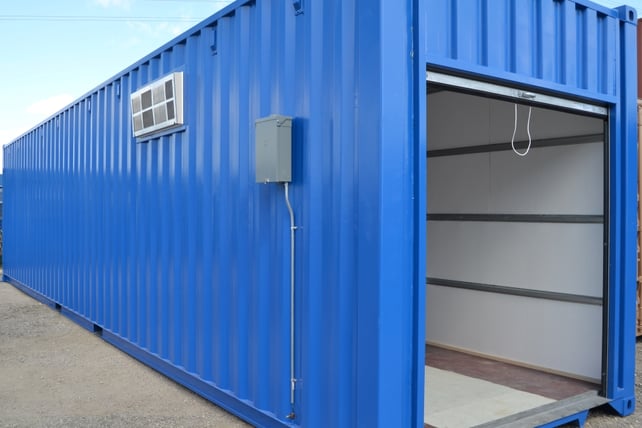
- Roll-up doors allow access to bigger items, such as crates or large bags of food. These doors are easy to open and lock shut after hours.
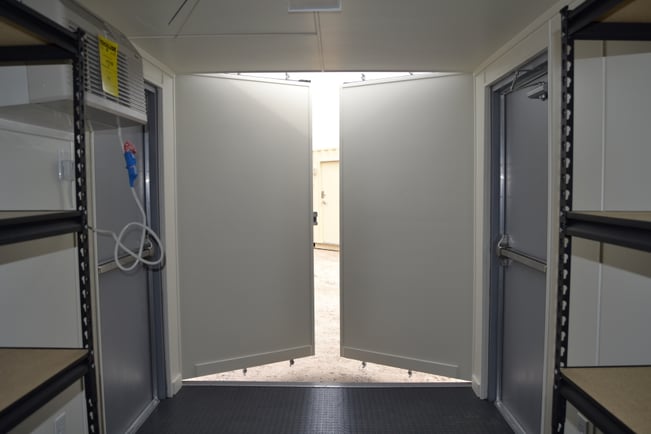
- Cargo doors can be left operational on a modified shipping container to improve accessibility for large items. The ability to open an entire end of a storage container helps companies restock their items as they see fit.
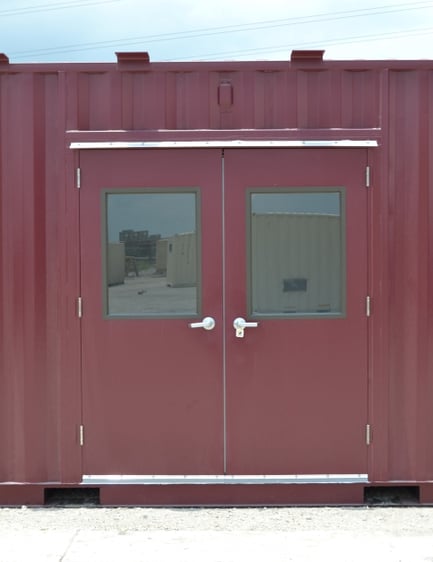
- Personnel doors are ideal for frequent access to stored items. Companies can add a personnel door alongside a roll-up door or cargo door to offer more than one entrance.
3. Maintain an Ideal Temperature

If you live in an area with very hot summers, it may be difficult to store even nonperishable items without air conditioning. To maintain the desired dry storage temperature of 50-70 degrees Fahrenheit, you may need to add air conditioning and insulation.
Climate-controlled containers with industrial air conditioning units help regulate temperature. Adding an HVAC system helps control the humidity and keep it at a preferred low level.
Similarly, insulation helps protect stored pantry items from the climate by maintaining the desired internal temperature. Insulation options include Styrofoam, batt, and spray foam. Depending on the climate and how you plan to use your container, one insulation option will likely work better than others.
The Dry Storage Shipping Container Advantage
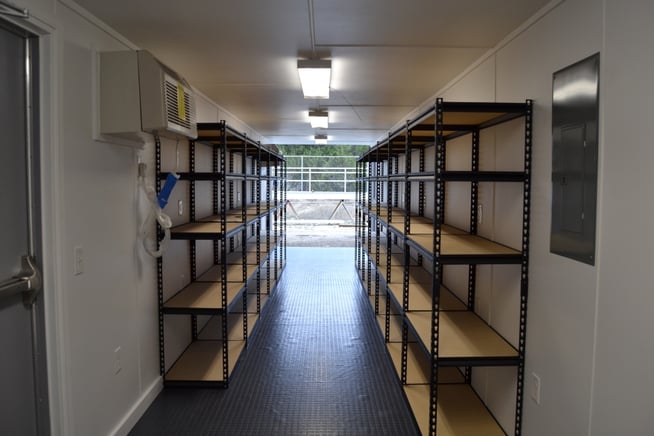
Modified shipping containers keep out anything that needs to stay out, such as water, pests, and heat. At the same time, the interior can be designed to meet each grocery store, food bank, and restaurant’s individual needs, so all the items stored in the container are easily accessible.
Design a shipping container portable pantry based on your ideal configuration by utilizing the standard sizes of shipping containers which come in 10-foot, 20-foot, and 40-foot lengths. Place your container pantry in hard-to-reach locations by dropping the unit in with a crane and relocating it as your company moves and expands.
The opportunities with a modified shipping container are endless. To inquire about a dry storage shipping container, give us a call at 512-231-1010 or email us at Sales@FalconStructures.com. We’d be happy to answer any questions you may have or help design your ideal structure.
SUBSCRIBE
- Shipping Container Modifications
- How-Tos
- Workspace
- Commercial Construction
- Multi-Container Buildings
- Storage Solutions
- Industrial Enclosures
- Bathrooms & Locker Rooms
- Oil & Gas
- Climate Control
- Green Building
- Industry Insight
- Living Space
- Military & Training Facilities
- Water Treatment Solutions
- Energy
THINK INSIDE THE BOX®
WITH OUR BLOG
Get everything from shipping container basics, to detailed how-tos and industry news in our weekly blog. Stay inspired and subscribe!
RELATED BLOGS

Optimize Your Drill Site with Shipping Container Storage
Marissa Morin | Dec 22, 2021 | 2 min read
READ MORE
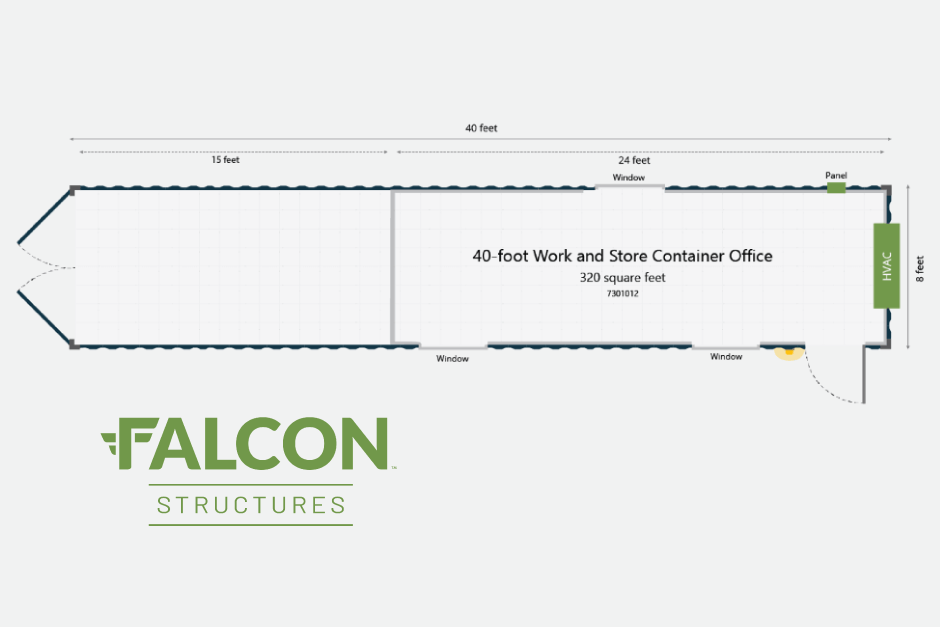
Portable Office Storage Container: The Unit You Didn’t Know You Needed
Marissa Morin | Sep 29, 2021 | 3 min read
READ MORE
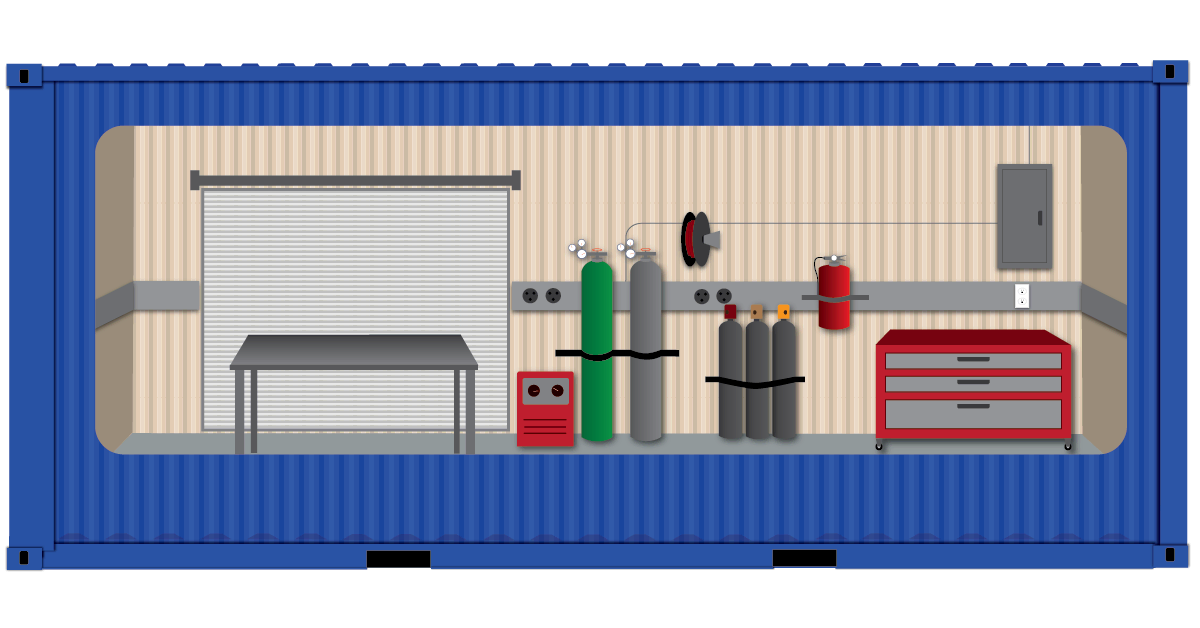
7 Creative Uses for Onsite Storage Containers
Marissa Morin | Oct 28, 2020 | 4 min read
READ MORE

